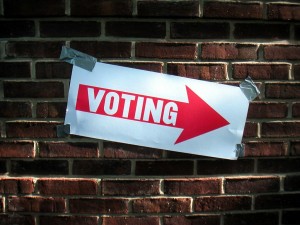Articles
Study: Selected Resources
<p><em><br><img src="/storage/app/media/2013TitleMap-PEACE.png" style="width: 576px; height: 255.328px;" class="fr-fic fr-dib"></em></p> <p style="text-align: center;"><em>Image credit: Peace Studies Section, International Studies Association</em></p> <p>To form our consciences on issues of war, nonviolence, Just Peace, and justice and injustice, we need to be lifelong learners. The field of peace and justice studies has grown tremendously in recent decades. Universities worldwide offer degrees in Conflict Resolution (or Conflict Transformation), International Peacebuilding, Sustainable Development, and related fields. </p> <p>The literature has grown accordingly. Below we offer a brief selection of titles that we have found useful. Please share your favorites with us!</p> <h3 dir="ltr"><strong>General C...</strong></h></em></p>
Read MoreDrone Warfare
<p><em>Unmanned aerial vehicles (drones) flown by the U.S. Military and Central Intelligence Agency have killed and maimed thousands of people—including many innocent men, women, and children—in numerous countries, including Afghanistan, Pakistan, Iraq, Syria, Yemen, Somalia, and Libya.<br></em></p> <h2><strong><img src="/storage/app/media/Reaper%20Drone.jpg" style="width: 300px;" class="fr-fic fr-dib"></strong></h2> <p> <!--[if !vml]--> <!--[endif]--><strong>We decry our government’s use of unmanned aerial vehicles (drones) as the new face of war.</strong></p> <p><strong><em>1. </em></strong><strong><em>Drone killing is illegal.</em></strong> Under the U.N. Charter, which is a binding treaty of the U.S., a member state may use military force only in defense to an armed attack or with the authoriz...</p></h></p>
Read MoreAdvocacy with Others - the Church
<p>Besides advocating for your position with elected officials, become an advocate with others, including <a href="/post/advocacy-family">family members, friends, and associates</a>; <a href="/post/advocacy-corporations">corporations</a>; and the Church.</p> <h3>The Church</h3> <p>Sometimes our Church is at the vanguard of education and advocacy campaigns, and other times it needs to be encouraged to do more. Often we have great resources to draw on from Scripture, Catholic Social Teaching (CST), and statements from the Pope and U.S. Conference of Catholic Bishops (USCCB); but the information and urgency for action may not have filtered down to the diocesan and parish levels.</p> <p>Accor...</p>
Read MoreAdvocacy with Others - Corporations
<p>Besides advocating for your position with elected officials, become an advocate with others, including <a href="/post/advocacy-family">family members, friends, and associates</a>; corporations; and <a href="/post/advocacy-church">the Church</a>.</p> <h3>Corporations</h3> <p>Many of the advocacy tools used to communicate with elected officials (see links on the <a href="https://paxchristimdcb.org/post/what-we-do-advocate">main Advocacy page</a>) can work with corporations as well, particularly as part of a coordinated campaign involving many other advocates. These tools include well-focused petitions, social media messaging (Twitter, Facebook, etc.), letters, emails, and letters to the editor. Phone calls and visits to the corporation’s of...</p>
Read MoreAdvocacy with Others - Family, Friends, and Associates
<p>Besides advocating for your position with elected officials, become an advocate with others, including family members, friends, and associates; <a href="/post/advocacy-corporations">corporations</a>; and <a href="/post/advocacy-church">the Church</a>.</p> <h3>Family Members, Friends, and Associates</h3> <p>Talk with family members, friends, neighbors, coworkers, members of other groups you’re involved in, etc. about issues of concern to you. Help educate them and encourage them to get involved in addressing the issues. Use in-person conversations, phone calls, emails, and social media messaging to provide relevant information, point them to reliable sources, invite them to meetings or ...</p>
Read More


